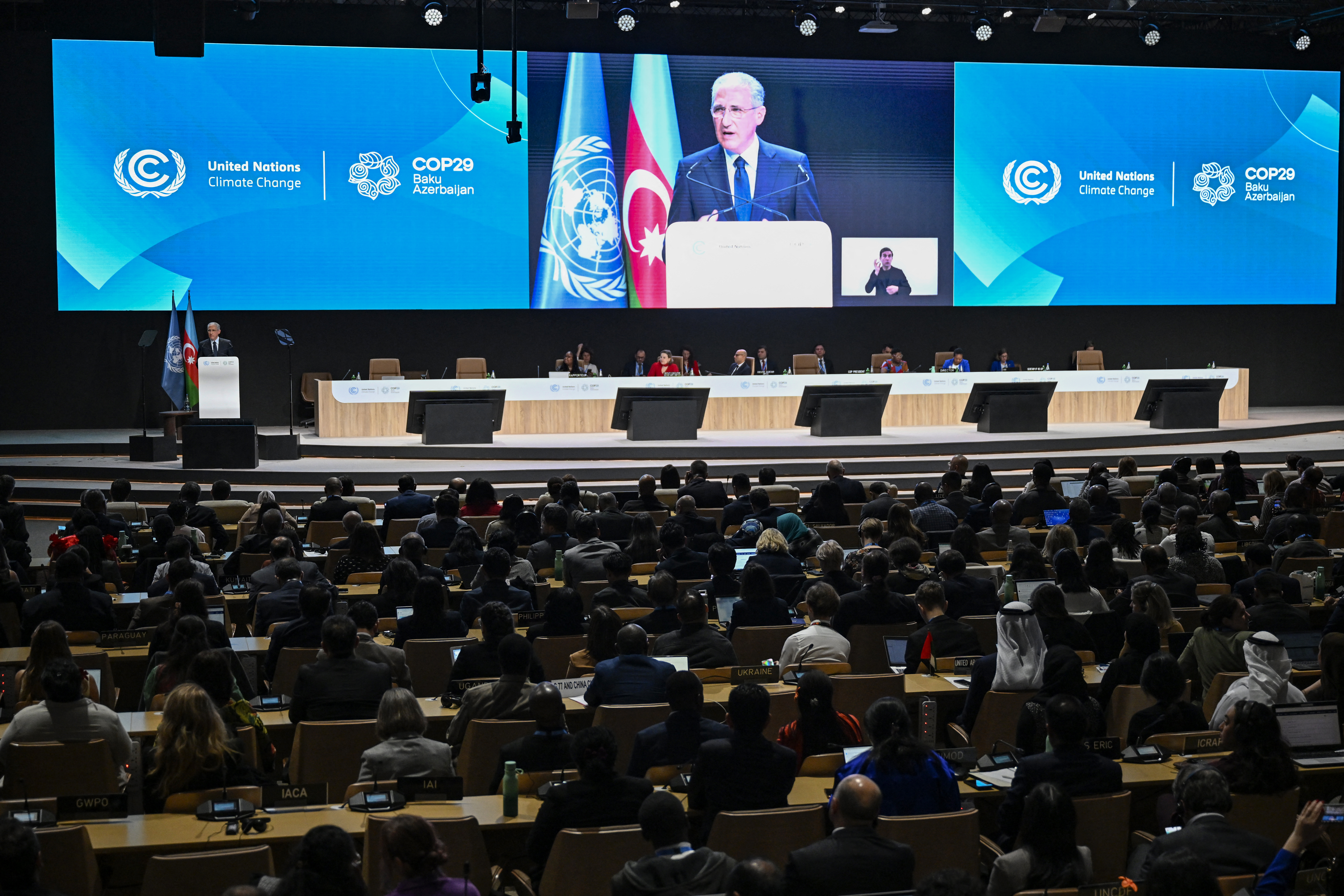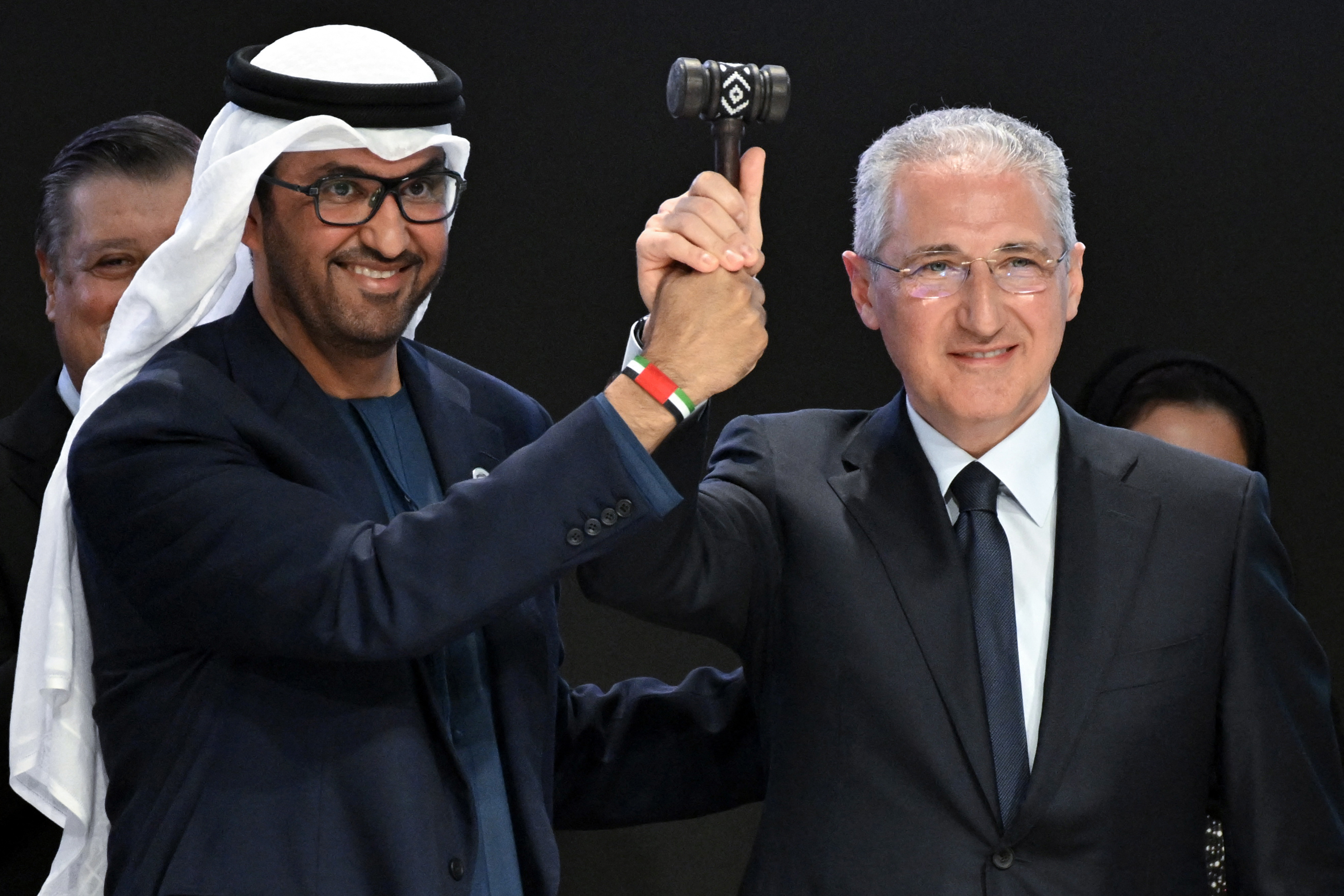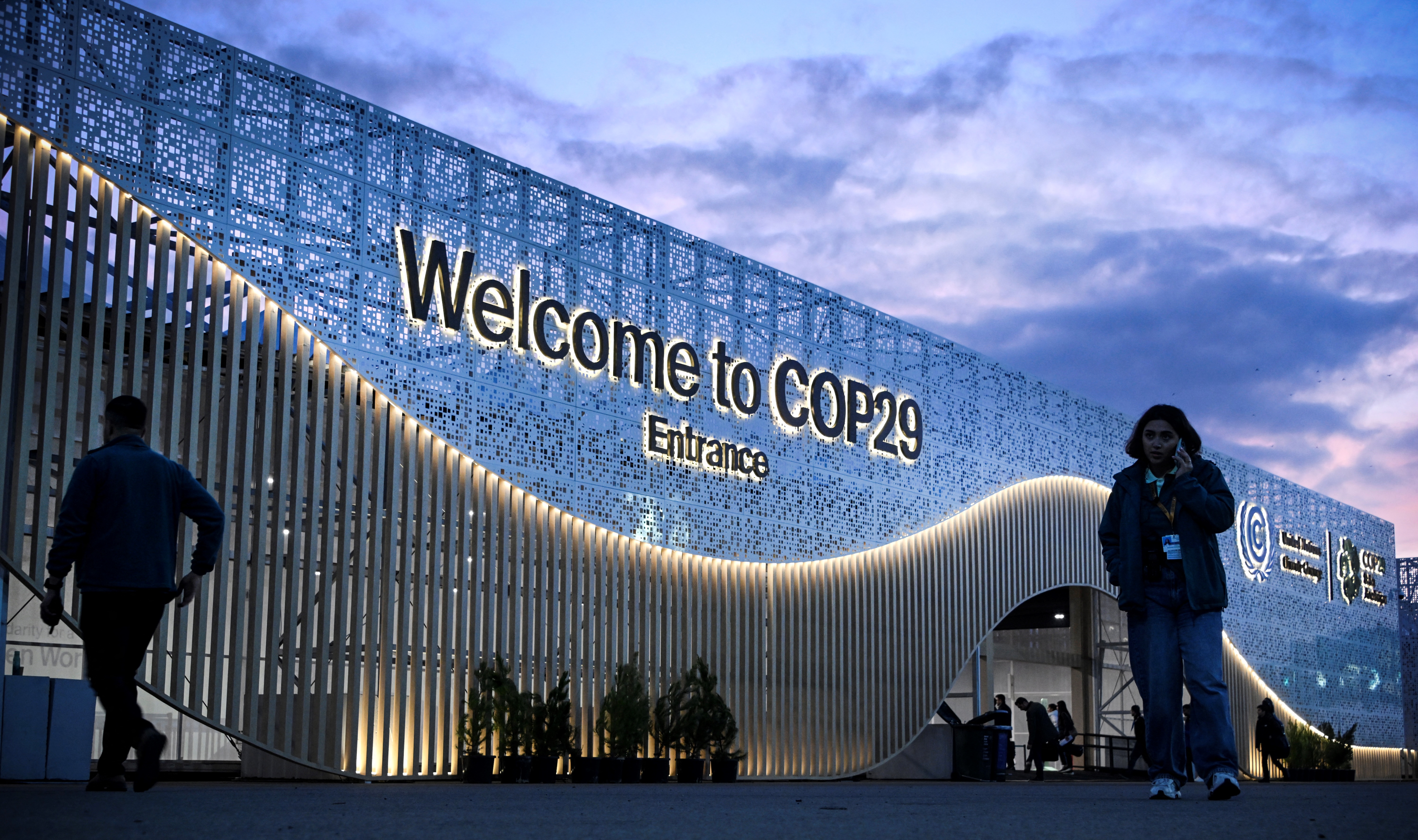
BAKU - The annual UN climate summit kicked off Monday with countries readying for tough talks on finance and trade, following a year of weather disasters that have emboldened developing countries in their demands for climate cash.
Delegates gathering in Azerbaijan's capital, Baku, hope to resolve the COP29 summit's top agenda item – a deal for up to $1 trillion in annual climate finance for developing countries, replacing a target of $100 billion.
That goal is competing for resources and attention against economic concerns, conflicts in Ukraine and Gaza, and the election of Donald Trump, a climate-change denier, for a second term as president of the United States, the world's biggest economy.
The event's president, Mukhtar Babayev, said the world was "on a road to ruin" and the summit was a "moment of truth" for the world's climate goals.
ALSO READ: Developing world faces multi-billion climate adaptation cash gap, UN report says
"Azerbaijan can build the bridge, but you all need to walk across it. In fact, we need to start running," he told delegates at the Baku Stadium venue.

Trump has called climate change a hoax and vowed to withdraw the US from the Paris Agreement, the global treaty to reduce planet-warming emissions.
The EU, along with current US President Joe Biden's administration, has been pressing Gulf oil nations to join the pool of climate finance donor countries.
Extreme pressure
This year is on track to be the hottest on record, and experts said climate extremes - from flooding disasters in Africa, coastal Spain and the US state of North Carolina, to drought gripping South America, Mexico and the US West - were challenging rich and poor countries alike.
Most countries are not prepared.
ALSO READ: 2024 will be world's hottest on record, EU scientists say
"Election results don't alter the laws of physics," said Kaveh Guilanpour, vice-president for international strategies at the nonprofit Center for Climate and Energy Solutions.
"Unless the world collectively steps up its efforts, the impacts of climate change will become increasingly severe and frequent and will be felt by an increasing number of people in all countries, including in the United States."

Many people gathered in Baku worry that US disengagement could lead other countries to backpedal on past climate pledges or scale back future ambitions.
"That is definitely a risk. People will be saying, well, the US is the second biggest emitter. It's the biggest economy in the world ... If they don't set themselves an ambitious target, why would we?" Marc Vanheukelen, the EU's climate ambassador from 2019 to 2023, told Reuters.
Azerbaijan has been lobbying governments to accelerate their move to clean energy while touting gas as a transition fuel.
President Ilham Aliyev has called Azerbaijan's fossil-fuel bounty "a gift of God," and Baku has proposed creating a Climate Finance Action Fund to collect voluntarily up to $1 billion from extractive companies across 10 countries including Azerbaijan.
READ MORE: World leaders call for investment in clean energy, developing nations seek help
Azerbaijan's gas exports to Europe this year are expected to exceed 12 billion cubic meters, after 11.8 billion cubic meters last year, as Europe seeks to reduce its reliance on Russian gas.
Presidential aide Hikmet Hajiyev said that, with its buildup of renewables, Azerbaijan was "moving from fossil fuel exports to green electricity exports." Baku aims to have renewable energy fueling 35 percent of its power plant capacity by 2030. Last year, this figure was about 20 percent.


